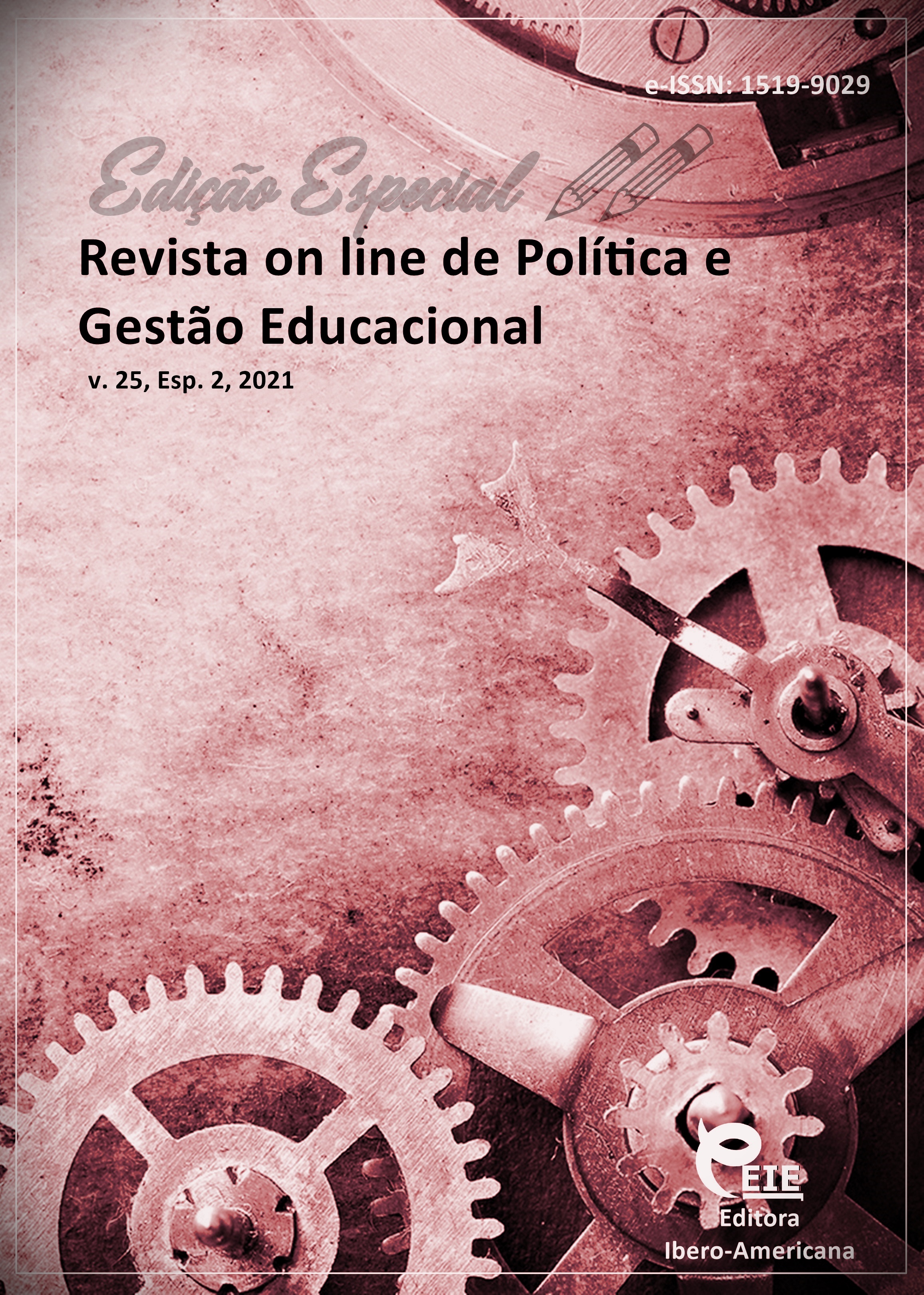Everyday life of the people's teachers of the russian empire in the second half of 19th - early 20th centuries
DOI:
https://doi.org/10.22633/rpge.v25iesp.2.15267Keywords:
Everyday life, Lifestyle, Standard of living, Multidisciplinarity, Legal status, Professional status, Folk teacherAbstract
This article examines the features of folk teachers' everyday life in the Russian Empire during the second half of the 19th - early 20th centuries. The study is based on such concepts as everyday life, lifestyle, standard of living, and working conditions. As the part of the study of folk teachers' everyday life, the author focused on the consideration of the material, legal status, living and working conditions, and professional opportunities provided to teachers. Besides, the reasons for the frequent layoffs of national teachers were studied. Based on a deep analysis of historical sources and literature, the author comes to the conclusion that by the end of the XIX - the beginning of the XX centuries most of the teaching positions in public schools began to be occupied by female teachers, and attempts were made to raise their material and legal status at the legislative level. Despite such attempts, folk teachers in the Russian Empire had a low professional status in contrast to their male colleagues during the second half of the XIX - early XX centuries. This was due to the fact that during this period woman were not full members of society yet and the processes of women's emancipation in Russia proceeded much more slowly than in other countries.
Downloads
References
Jaransk. Vyatka province. Vjatskaja rech', 1908. n. 50, p. 4.
MASLENCEVA, N. J. U. Sociological basis of the concept of life style. Vestnik ChelGU, n. 31, p. 147-150, 2010.
NART. The national archives of the Republic of Tatarstan. F. 92. Opis' 1. D. 9043. Ll. 31, 38.
NEW SCHOOL. Zhizn' i shkola. 1907. n. 11, p. 4.
ORLOV. Eagles. The persecution of teachers. Vjatskaja rech, 1908. 9 p.
RGIA. The Russian State Historical Archive. F. 733. Op. 195. D. 57. L. 12.
RGIA. The Russian State Historical Archive. F. 733. Op. 195. D. 57. L. 19.
RGIA. The Russian State Historical Archive. F. 733. Op. 227. D. 6. L. 12.
RGIA. The Russian State Historical Archive. F. 733. Op. 227. D. 6. L. 12.
RGIA. The Russian State Historical Archive. F. 759. Op. 1. D. 380. L. 11-12.
RGIA. The Russian State Historical Archive. F. 759. Op. 1. D. 380. L. 11-12.
RUSSIA. National teacher in pre-revolutionary Russia. Memories of the teacher-pensioner. Halturinskaja Pravda, 1957. n. 69, p. 2.
RUSSIA. Public education in the Kazan province: to the Trustees and teachers of rural schools. Kazan: Tipo-litografija I.V. Ermolaevoj, 1907. 118 p.
SOKOL, M. et al. Tolerance in the communicative culture of modern educational manager. Propósitos y Representaciones, v. 9, n. esp. 3, e1171, 2021.
ZUBKOV, I. V. Teaching russian: everyday life of teachers in zemstvo schools, gymnasia and real schools. Moscow: New chronograph, 2010. 528 p.
Published
How to Cite
Issue
Section
License
Copyright (c) 2021 Revista on line de Política e Gestão Educacional

This work is licensed under a Creative Commons Attribution-NonCommercial-ShareAlike 4.0 International License.
Manuscritos aceitos e publicados são de propriedade da Revista on line de Política e Gestão Educacional. É vedada a submissão integral ou parcial do manuscrito a qualquer outro periódico. A responsabilidade do conteúdo dos artigos é exclusiva dos autores. É vedada a tradução para outro idioma sem a autorização escrita do Editor ouvida a Comissão Editorial Científica.











